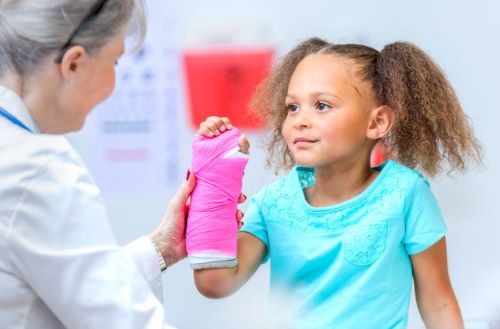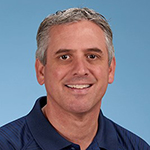
My son recently wrecked his knee in a skateboarding trick gone wrong. How do I get him through surgery and recovery?
Adolescents
When you crash and burn and immediately have a burst of pain or when your medical provider examines you and has that look on their face, you know something is seriously wrong.
So if you are facing surgery and/or several months of recovery, here are some key things that might ease the recovery process.
School
Missing school or attending in a fair amount of pain or discomfort, is no fun and it isn’t surprising that studies have shown lower grades (and even a higher risk of failing classes) after major surgeries.
Here are some tips when it comes to school:
Scheduling surgery. Most want surgery ASAP to get the return-to-play clock started. However, unless the procedure is emergent, it might be best to take a step back and look at the calendar first. Assume that there will be pain, increased daytime sleep (often due to medications), and mobility issues right after surgery that could affect school attendance and ability to do homework.
Is there a break coming up or even a long weekend? If not, doing the procedure later in a week can include the weekend for initial recovery. If exam periods are coming up, it may be best to schedule surgery when there will be less mental stress with getting exams completed.
Get an early game plan on mobility issues. If crutches, cast/cast boots, scooters or wheelchairs are needed, it may help to have elevator passes, supervised cart use for big campuses, and preferential parking/handicapped placards. Ask teachers to allow injured athletes to leave class early and/or arrive late (within reason) to avoid crowded hallways.
Arm yourself with assistance. Losing use of an arm (especially the dominant arm) will make writing a major chore. Plan to get teacher notes ahead of time, have a designated notetaker, or borrow fellow student notes (preferably one who is smart and writes very clearly). Dictation or oral testing can also be helpful using your Apple device (iPhone or iPad) to dictate.
Adjust schedules. Consider initial part-time attendance with emphasis on key classes or modify exam schedules. Either front-load exams before surgery or delay them for a while after a procedure/injury.
Sleep
How important is sleep? Very important. Those who sleep better recover and rehab better and eventually feel and perform better.
There are often unique phases of sleep challenges after a major injury and/or surgical repair:
Immediately after surgery or injury
This period can be hard to find a comfortable position and things just hurt. Using recommended pain treatments can be a start, but don’t just rely on medication. Swelling and throbbing pain can be reduced by elevation, elevation and elevation. Get legs elevated with piles of pillows and sleeping upright in a chair is often easier for shoulder or elbow injuries.
Three to four weeks after surgery or injury
It is often hard to fall asleep due to boredom. Taking a previously active person and shutting them down often means not being tired at bedtime. Antidotes to boredom and inactivity can include starting your active rehab program, cross-training and if physical activity isn’t allowed, then keep active with social and school activities. Early on in the recovery plan, find out what you can do especially with cross-training.
Mood
Everyone hopes and plans that recovery will be a consistent upward straight line with no delays. The true reality is that most recovery lines look like a scribble of peaks and valleys due to setbacks, unanticipated complications and a longer than expected healing process. Even the most determined, supported and confident athlete can face doubts that lead to anxiety about return-to-play, depression from pain, disappointment, and isolation from activity and colleagues.
Mood issues frequently intensify about one to three months-plus after surgery or injury. This is because much, if not all of the post-injury or post-surgical attention, has gone away, leaving the drudgery and isolation of rehab and recovery.
Things to look out for include poor appetite, reduced motivation to attend school/rehab, and even turning to alcohol or other drugs in attempts to deal with the disordered mood.
Any concerns about emotional health, especially with threats of self-harm or harm to others, need immediate medical evaluation and intervention.
Food
Injuries can lead to weight gain or weight loss. Weight gain may be from well-intended gifts of comfort food that are often on the higher calorie side. Higher food intake with less activity can also result in weight gain. Weight loss could be due to the loss of muscle mass or poor appetite (often due to medications and pain).
Don’t deprive yourself of some good tasting stuff, but do work with your medical team to evaluate calorie needs and make adjustments in amount, types and timing of food intake with a focus on:
- Protein — especially after exercise to help bone and muscle recovery
- Reducing processed foods and increasing anti-inflammatory foods, which can increase recovery
potential
Keeping It Real
Everyone wants the cleanest road map to return, with set check-off points and guaranteed date of return. Medical professionals want to be optimistic and appropriately aggressive to reduce downtime. However, setting return targets that aren’t realistic, or that are based on only passage of time rather than on the abilities to perform certain tasks to show recovery don’t do any favors and contribute to frustration.
Being real with athletes by setting task/skill-oriented return goals rather than just time, and addressing the key components of school, sleep, mood and food are the best ways to help athletes heal and deal with the prolonged time off from injury and surgeries.

Dr. Chris Koutures is a dual board-certified pediatric and sports medicine specialist who practices at ActiveKidMD in Anaheim Hills. He offers a comprehensive blend of general pediatric and sport medicine care with an individualized approach to each patient and family. Please visit https://activekidmd.com or follow him on Twitter (@dockoutures).
(Opening Photo Courtesy of Cleveland Clinic’s Health Essentials)







Leave a Reply